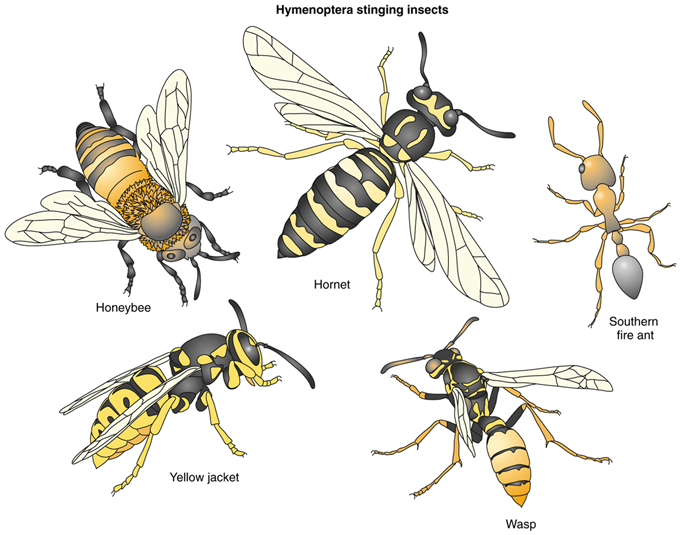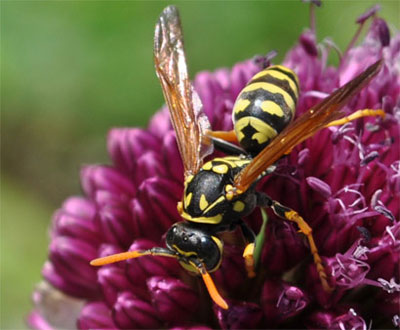With the onset of summer, more people are spending time outdoors. Being outdoors means greater exposure to stinging insects. Many people wonder “Am I at increased risk for a life threatening, allergic reaction to a venomous insect (venom allergy) because I have seasonal allergies”?
The short answer is No. Just because you are allergic to tree, grass or weed pollen, you are not at greater risk for anaphylaxis to venomous insects. The Facts:
The Facts:
Hymenoptera Hypersensivity is the medical term for a life threatening allergy to venomous insects. These insects may include honey bee, wasp, hornet, yellow jacket and fire ant. Venom allergy affects about 5% of the population. It is a serious, life threatening condition and results in about 90-100 deaths per year.
Typically the first time someone is stung the there is no reaction or the reaction is mild. This is because it takes a sting for the body to develop antibodies called IgE. It is then upon being stung again that the sting triggers this IgE immune response that can cause life threatening symptoms.
Anaphylaxis vs. Local Reactions
 Venom anaphylaxis includes symptoms such as swelling of the tongue, throat or face, trouble breathing, dizziness, stomach cramps/nausea/diarrhea, itching and hives. A local reaction is very common and includes redness, swelling at the sting site, and itching at the sting site. If you are stung and have anaphylactic symptoms you need to seek medical care. Venom testing in these patients may be needed in the future. Remember, you must have been stung to develop antibodies and “become allergic” so testing just to make sure without ever having been stung is not indicated.
Venom anaphylaxis includes symptoms such as swelling of the tongue, throat or face, trouble breathing, dizziness, stomach cramps/nausea/diarrhea, itching and hives. A local reaction is very common and includes redness, swelling at the sting site, and itching at the sting site. If you are stung and have anaphylactic symptoms you need to seek medical care. Venom testing in these patients may be needed in the future. Remember, you must have been stung to develop antibodies and “become allergic” so testing just to make sure without ever having been stung is not indicated.
Venom Allergy: What can be done?
Avoidance is best. If you are allergic, carrying an injectable Epinephrine device and oral antihistamine is advisable. Immunotherapy (otherwise known as allergy shots) for venom is also a considerable option. If you have concerns please discuss them with your CAAC provider or make an appointment today.
Happy Summer!
Category: Uncategorized



